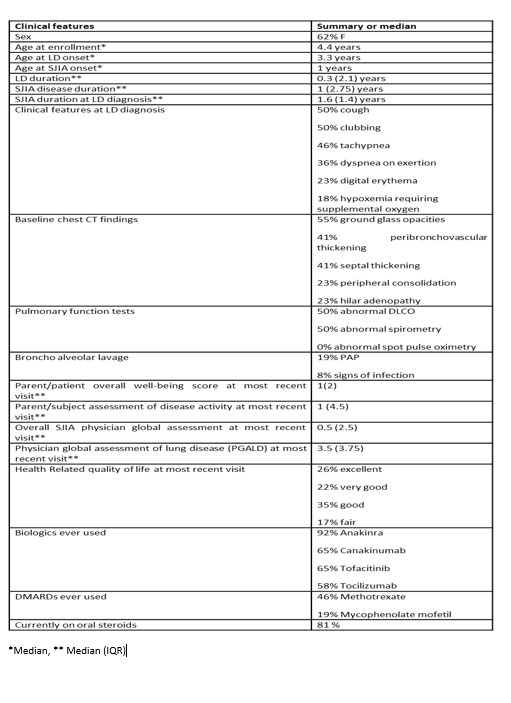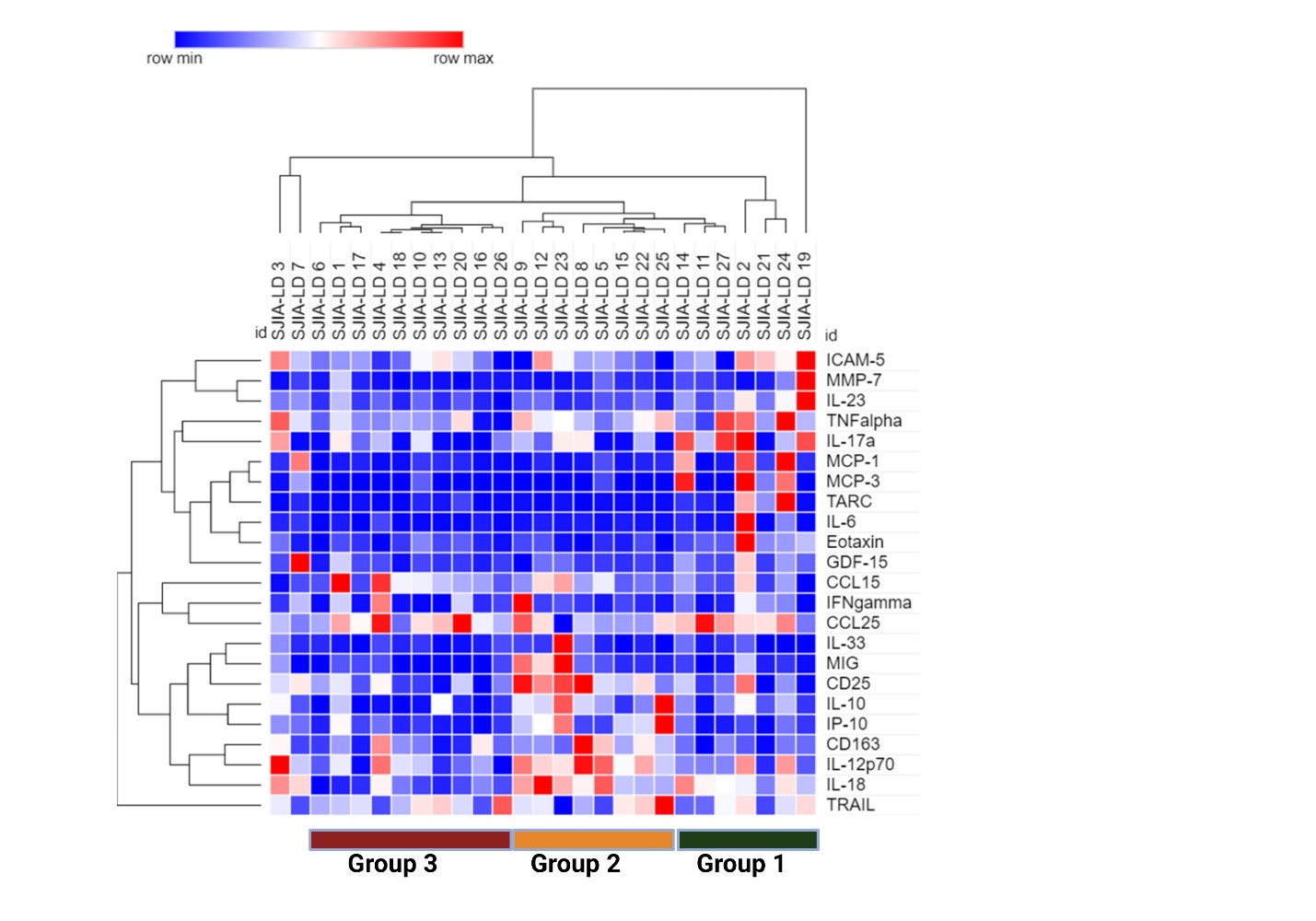Session Information
Session Type: Poster Session A
Session Time: 9:00AM-11:00AM
Background/Purpose: Systemic juvenile idiopathic arthritis (SJIA) associated lung disease (SJIA-LD) is an emerging and life-threatening clinical problem with urgent unmet needs including prevalence, pathogenesis, disease biomarkers, influence of biologics, and outcomes. The objective is to define baseline clinical features and biomarker profiles of patients in the CARRA Registry SJIA-LD cohort.
Methods: Existing or newly enrolled CARRA Registry patients with SJIA and suspected, probable, or definite SJIA-LD were included in the cohort. In addition to standard Registry data, lung disease specific data was obtained using a standardized case report form through REDCap Cloud, and biosamples collected when available. Biomarker profiles were determined from plasma using a custom Luminex panel. This study was approved by the DCRI Reliant IRB and/or IRB of all Registry sites.
Results: 37 patients were enrolled in the SJIA-LD cohort, from 16 CARRA Registry sites in the US. 46% had definite (biopsy-proven), 36% probable, and 18% suspected SJIA-LD. Demographic and clinical features are shown in Table 1. Of those who underwent lung biopsy, all had pulmonary alveolar proteinosis (PAP) and interstitial inflammation, and 40% had collagenous fibrosis. 77% had at least one definite episode of macrophage activation syndrome (MAS) (including 64% that met the 2016-SJIA-MAS criteria), 73% had more than one MAS episode, and 32% had subclinical MAS. MAS occurred prior to SJIA-LD diagnosis in 68% and coincided with it in 18%.
Across all patient samples, SJIA-LD patients showed significantly increased plasma levels of IL-6, IL-12, IL-18, CXCL9, CD25, CCL11, CCL17, MCP-1, and MCP-3 compared to healthy pediatric controls. Cluster analysis defined 3 distinct groups of SJIA-LD patients. Group 1 (n=7) showed high levels of TNF, IL-6, IL-17, MCP-1 and 3, CCL11, and CCL17; group 2 (n=8) showed high IL-10, IL-12, IL-18, CXCL9, CXCL10, CD25, and CD163; and group 3 (n=10) showed high CCL15 and CCL25 (Figure 1).
Conclusion: Patients in the CARRA SJIA-LD cohort exhibit a broad spectrum of clinical and radiographic features, disease activity, and treatment approaches. Recurrent MAS was common. Patients with SJIA-LD showed multiple distinct plasma biomarker patterns. As an ongoing prospective cohort study of this emerging disease, we will be able to assess clinical features, longitudinal disease progression and trajectories, as well as associated immune biomarkers and cellular populations.
To cite this abstract in AMA style:
Eloseily E, Clark A, Chang M, Riordan M, Russell a, Natter M, Thornton S, Kimura Y, Schulert G. Baseline Clinical Features and Biomarker Profiles of the Childhood Arthritis and Rheumatology Research Alliance (CARRA) Systemic Juvenile Idiopathic Arthritis Associated Lung Disease (SJIA-LD) Cohort [abstract]. Arthritis Rheumatol. 2023; 75 (suppl 9). https://acrabstracts.org/abstract/baseline-clinical-features-and-biomarker-profiles-of-the-childhood-arthritis-and-rheumatology-research-alliance-carra-systemic-juvenile-idiopathic-arthritis-associated-lung-disease-sjia-ld-cohort/. Accessed .« Back to ACR Convergence 2023
ACR Meeting Abstracts - https://acrabstracts.org/abstract/baseline-clinical-features-and-biomarker-profiles-of-the-childhood-arthritis-and-rheumatology-research-alliance-carra-systemic-juvenile-idiopathic-arthritis-associated-lung-disease-sjia-ld-cohort/


